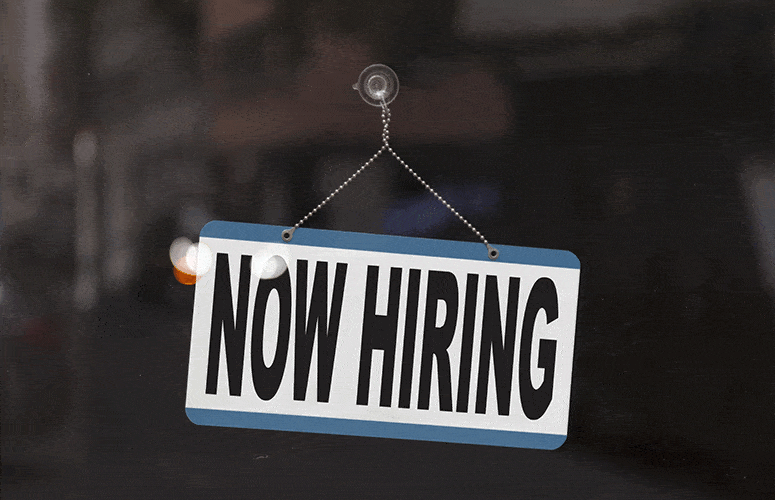
Guiding Small Business Success
Discover how bankers, lawyers, and accountants are developing solutions for the challenges business owners face in today’s economy.
By Lisa Goulian Twiste, Contributing Writer On Oct 6, 2023In the latter part of 2020, when communities were in crisis due to the economic consequences of COVID-19, government incentive programs such as PPP loans, Employee Retention Tax Credits, increased unemployment benefits, and the lowering of interest rates helped many small businesses avoid shutdowns and other drastic outcomes.
“Costs were rising, but people – and small businesses – didn’t feel the full extent of it because there was an influx of money from relief funds and incentives,” says Steven Poliseo, partner at the accounting firm of Citrin Cooperman in Livingston. Toward the end of COVID-19 and into the present, however, those incentives have either been reduced or expired, forcing small businesses to deal with the harsh realities of rising costs and runaway inflation. In fact, 2022 saw the highest level of inflation in 40 years, and though there has been a contraction from last year’s peak, indicators are pointing toward a near-term expansion period experts say could extend into 2025.
“Inflation remains the top concern for a majority of small business owners, followed by rising interest rates, revenue, and supply chain issues,” says Robert Johnson, director & chief diversity officer, corporate group, at Gibbons Law, which has New Jersey offices in Newark, Trenton, and Red Bank. “Rising interest rates are limiting small businesses’ ability to raise capital or financing for their business. Minority-owned businesses are particularly vulnerable to rising interest rates and access to capital concerns.”
According to Matthew Flannery, senior vice president, SBA director at Jersey City-based Provident Bank, many of the small businesses that come to the bank for financing are faced with a lack of available working capital to run day-to-day operations. “A softening economy and bank failures earlier this year have led banks to be more cautious with their lending practices,” he says. “Access to bank-funded working capital is harder to obtain than in the past, and a high interest rate environment makes borrowing these funds more expensive than in years past.”
Law and Accounting Firms Offer Help
No doubt, COVID-19 ushered in a difficult period for small businesses, prompting many law and accounting firms to offer relief and guidance. Gibbons Law, for example, has partnered with the nonprofit Institute for Entrepreneurial Leadership (IFEL) on an initiative called “Small Businesses Need Us” (SBNU), which provides free legal counsel and other business services to minority- and women-owned businesses impacted by the pandemic. In the three years since the onset of COVID-19, Gibbons lawyers have donated hundreds of hours to SBNU clients through ventures like a STEM enrichment program for students, an event management company, and life and business empowerment coaching.
The Tax Team at Gibbons is also helping small business clients with tax issues that arise in corporate transactions like mergers and acquisitions, divestitures, restructurings and spinoffs.
“By staying well informed of supply chain trends and market developments, we can combine comprehensive knowledge of our clients’ ventures with always-current insight into the supply chain business environment to provide practical, perceptive advice, which is particularly relevant because of the inflationary challenges businesses are currently facing,” Johnson adds.
Another ongoing problem for small businesses is access to labor due to the consequences of COVID-19 and “the Great Resignation,” Citrin Cooperman’s Poliseo says. Food services, manufacturing and distribution, professional services, and the auto industry are some of the professions that have found qualified human resources difficult to locate.
He points to the rising costs of goods and materials as another major issue, saying costs adjusted for inflationary trends and a lack of certain materials, while improved, are of high concern for small businesses in the New York tri-state area and across the country. Material sourcing also remains challenging and small businesses have had to work hard to adjust supply chains to meet customer demand.
To help, Citrin Cooperman is using a proactive advisory model with the motto, “Focus on What Counts,” studying various industries and trends and advising clients on where their focus should be as well as strategies that can help their specific businesses. “Whether that is our manufacturing and distribution team helping owners solve supply chain issues, our staffing team advising on trends in human resource management, or our automotive dealerships team addressing inventory management and service department staffing needs, we go to our clients with advice and solutions specific to their business,” Poliseo says.
Banks Provide Loans and Other Assistance
On the banking front, Provident Bank has come up with solutions for small businesses facing a lack of available working capital, including start-up financing for a franchise, business acquisition financing, owner-occupied real estate financing, equipment debt refinancing, and financing for ground-up real estate construction. Currently, Provident is expanding its SBA department to help provide financing to more small businesses, which Flannery says are the “backbone of our economy and communities.”
Peapack Gladstone Bank also takes a personal approach with small business clients, many of which are privately held and employ between three and 500 people. Businesses concerned about securing deposits of more than $250,000 in the wake of the Silicon Valley Bank collapse can take advantage of a Peapack product that allows the business to obtain FDIC insurance on up to $50 million. There’s also major concern about the cost of borrowing – an SBA loan in January of 2022 with a 6% interest rate is now lending at around 11% – and while inflation may be cooling somewhat, clients have also seen a rise in the cost of labor, fuel and materials, making it even more difficult to keep up with loan repayment.
“The Fed has made it very difficult for banks to lend – they’re not incented to do it because they can’t make money based on the curve – and a lot of our competition has decided to pause,” says Gregory M. Smith, Peapack’s senior executive vice president, president of commercial banking. “However, we continue to be very active in the lending space, and even though we think next year is going to be even more challenging, we’re going to be out there trying to help our clients.”
According to Andrew Glatz, Peapack’s senior managing director/head of SBA, this help includes offering longer terms on repayment of loans, smaller down payments, and liberal underwriting requirements. Earlier this year, as an example, Peapack provided financing to an entrepreneur whose purchase option on a leased gym/fitness center was about to expire. “He was recovering from the effects of COVID and had trouble getting financing, so we got the business approved for an SBA loan and a revolving line of credit for business needs. Six months later, he’s doing well,” Glatz explains. “The best thing we can do is get clients an SBA loan for two or three years, let them know we have their back. At the end of day, we want them to be able to repay that loan so we can give it out to another business in need.”
To access more business news, visit NJB News Now.
Related Articles:





